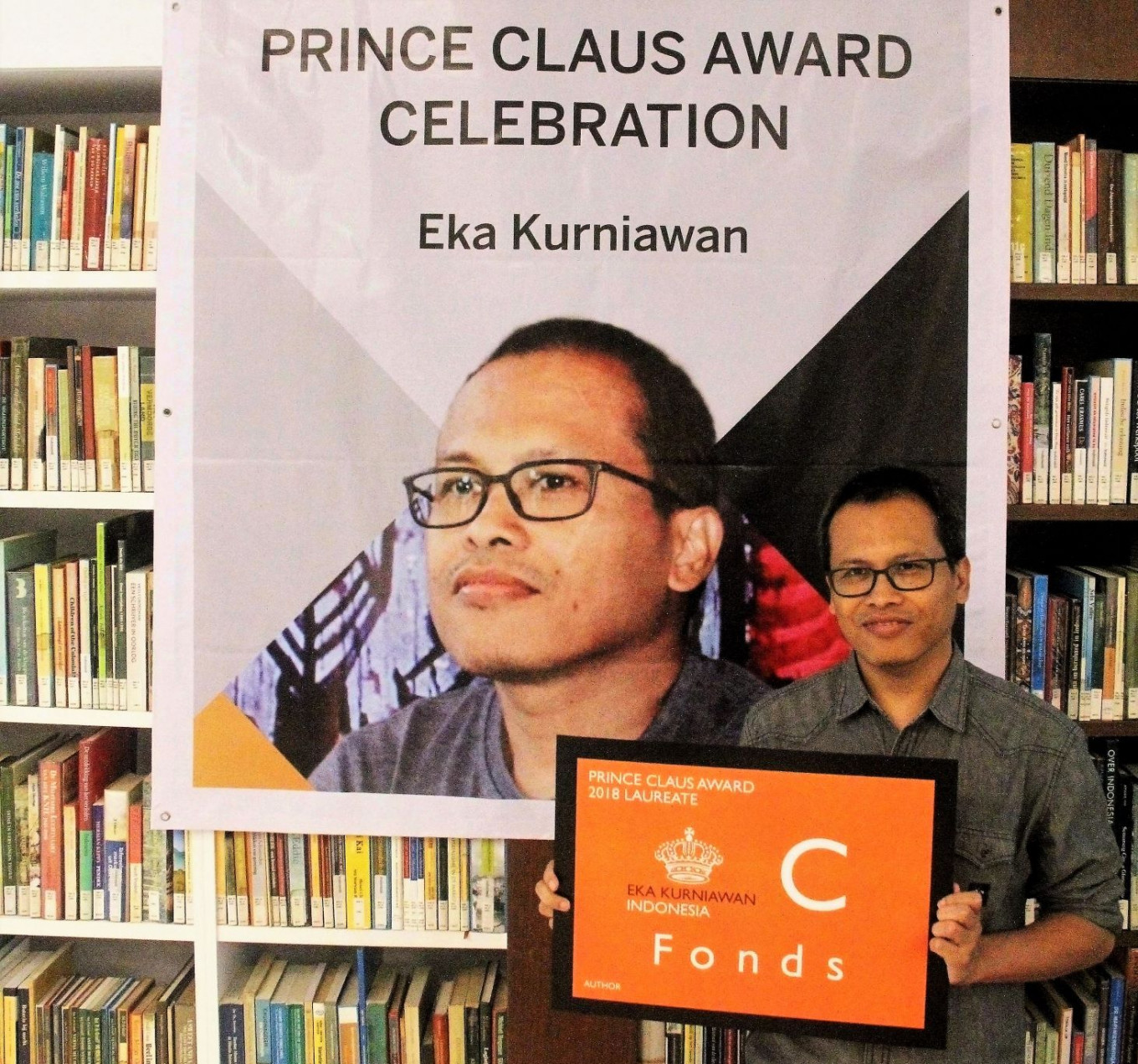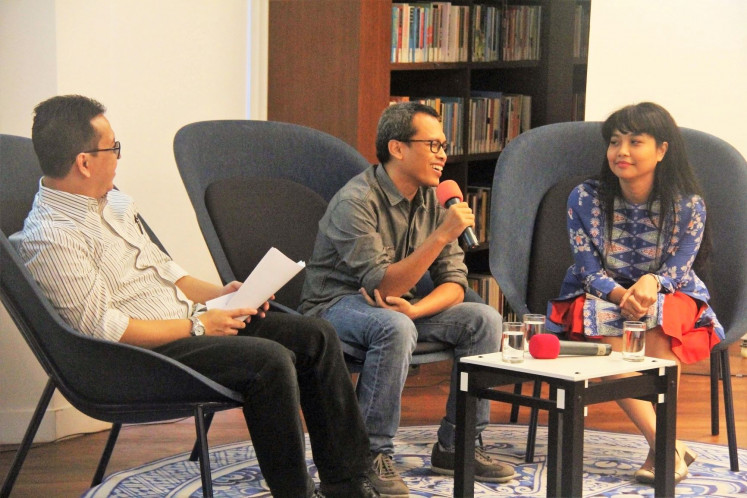Popular Reads
Top Results
Can't find what you're looking for?
View all search resultsPopular Reads
Top Results
Can't find what you're looking for?
View all search resultsEka Kurniawan celebrates Prince Claus Award in town
Author Eka Kurniawan was surrounded by family, friends and peers as they celebrated his outstanding achievements in literature.
Change text size
Gift Premium Articles
to Anyone
A
t an intimate ceremony within the newly refurbished library of Erasmus Huis in Jakarta, author Eka Kurniawan’s joy was apparent in the broad smile across his face.
Prince Constantijn of the Netherlands originally presented Eka with the Prince Claus Award in December 2018 during a ceremony at the Royal Palace of Amsterdam. As is the case for all of the award’s laureates, a ceremony is then held by the Dutch ambassadors of the respective countries where the laureates live and work..
Though a smaller and far less grand affair, for Eka, the ceremony in his home city was a chance to invite some of his friends and family to celebrate together.
“As a writer, I have grown up inside a literary community in Indonesia. I couldn’t be a writer without this community,” he said.
The ceremony kicked off with a speech from Dutch Ambassador to Indonesia Rob Swartbol, who spoke of the role of culture in benefiting society: to open up the eyes of the world through cultural and artistic understanding.
Book talk: Eka Kurniawan (center) is joined by philosophy lecturer Saras Dewi (right) and history lecturer Bondan Kanumoyoso for a panel discussion on his writing. (Courtesy of Erasmus Huis/Andri Astarisanna)
Eka was joined on stage by University of Indonesia history lecturer Bondan Kanumoyoso and philosophy lecturer LG Saraswati Putri, who is better known as Saras Dewi, for a panel discussion on his work.
Saras said that through Eka’s works, readers would be left pondering certain philosophical questions on reality and fantasy; good and evil; and suffering and happiness.
She was referring to the unlikely hero in Cantik itu Luka (Beauty is a Wound), Dewi Ayu, who survives violent years of the Japanese occupation, being brutally raped by Japanese soldiers, and, after the independence, comes to a realization that being a prostitute is the thing she knows best.
Cantik Itu Luka was first published in 2002, followed by Lelaki Harimau (Man Tiger) in 2004. However it was not until 2015 when Eka first sparked the interest of the international literary scene with an English translation of Lelaki Harimau.
Seperti Dendam, Rindu Harus Dibayar Tuntas (Vengeance is Mine, All Others Pay Cash) followed in 2014 with Eka gaining more exposure. Many have likened him to renowned authors Gabriel García Márquez and Salman Rushdie, and he is widely pronounced as the heir to Indonesian literary icon Pramoedya Ananta Toer.
Eka’s work has been praised by many for depicting characters who survive and endure the most difficult of hardships.
“I do not only want to see the world from the perspective of people who are marginalized or neglected, but also express it with their language and literature.”
Eka never envisioned he would be writing for an international audience.
“I never actually think about [readers] outside of Indonesia, I don’t know what they read or what kind of imaginings they have. What I can imagine is plenty of my close friends. Usually I just write for them.”
In a question and answer session after the panel discussion, audience members probed Eka on the recurring theme of vengeance in his work, and how oral storytelling traditions can coexist with literature.
Eka’s status as an international voice for Indonesia was also raised, with one audience member bringing up a recent opinion piece published in The New York Times in which Eka warns of the growing Islamization that "has come to dominate our politics”.
Eka was quick to clarify that in all that he writes, he speaks from his perspective alone.
Through his writing, Eka offers an alternative perspective of history, but he is under no pretense that he is a representative of the vast and diverse nation that is Indonesia.
Eka sees his writing – both literary and political commentary – as his personal interpretation, his own telling of history and his truth.
For some, Eka’s stories may be hard to swallow, and at times his horror-cum-magical realism-cum-folklore tales are gut-wrenching in their gore and suffering.
The Prince Claus Award honors Eka for helping readers "to construct a better understanding of their country”, and it is for these reasons that his work is so important. Eka’s voice is intimate, daring and fearless, the power of which is to be celebrated. (ste)
-- The writer is an intern at The Jakarta Post.












